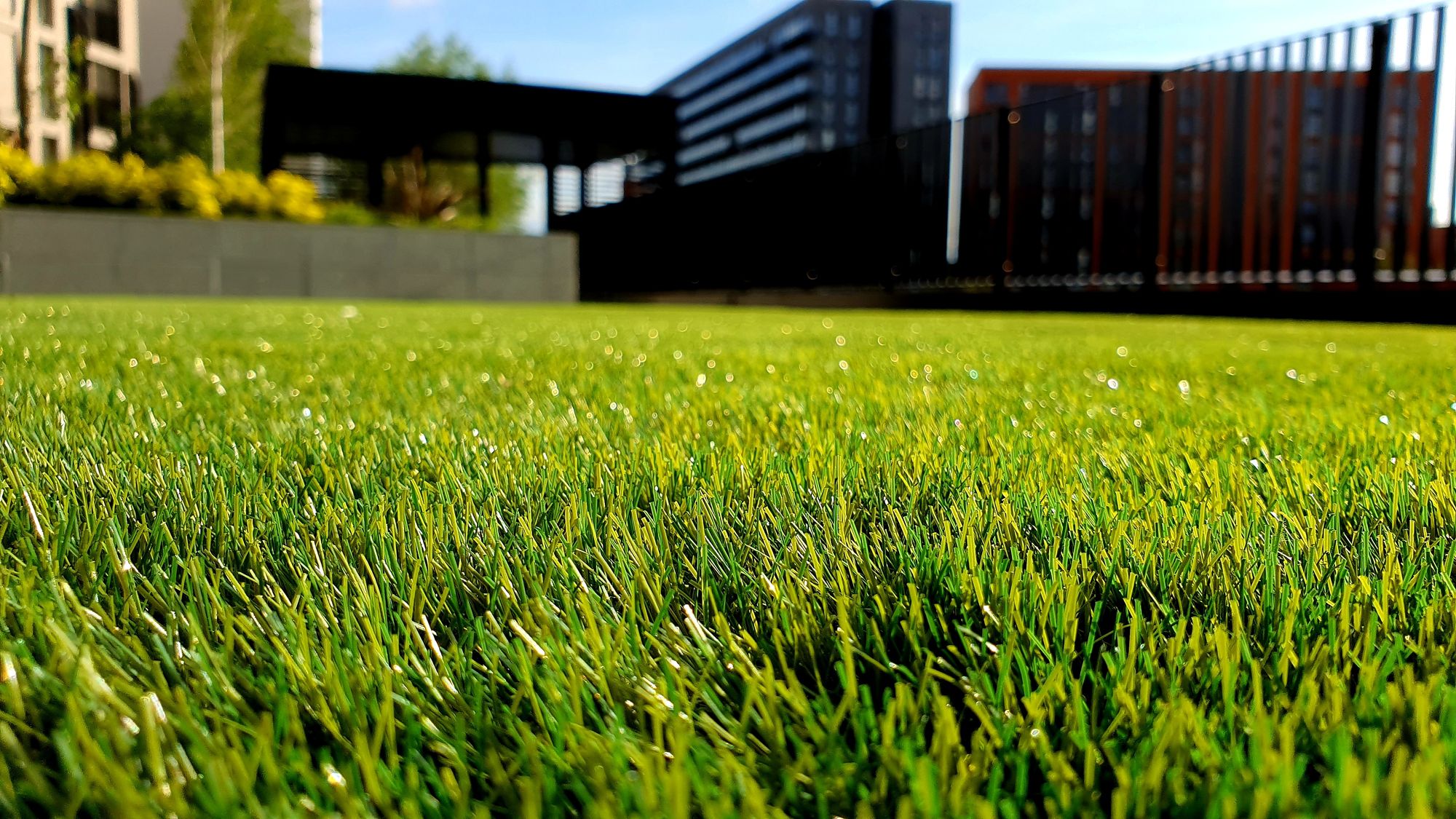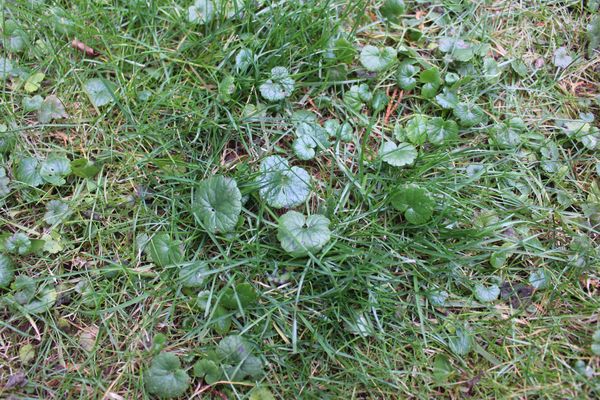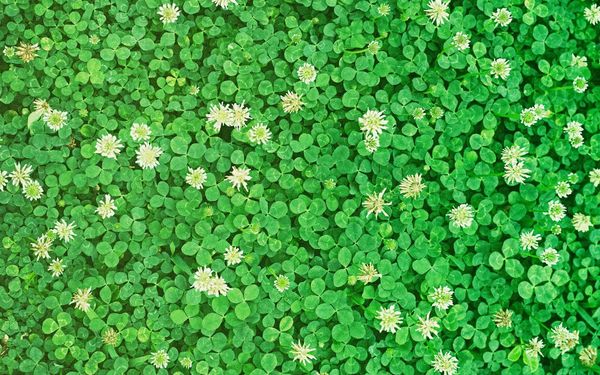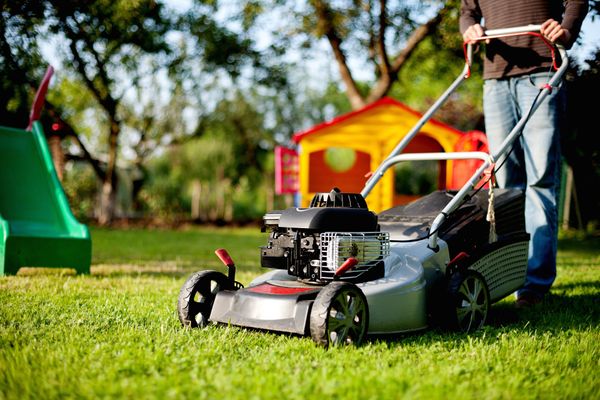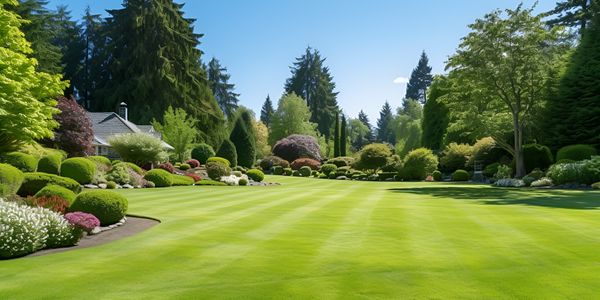Need some innovating ways to take care of your lawn? We got you covered.
Below we’ll go into 10 unique ways to keep your lawn looking fresh.
Let’s get started.
10 Ways to Take Care of Your Lawn
Regular Mowing
Ensure that you mow your lawn regularly but not too short. The general rule is never to cut more than one-third of the grass height in a single mowing. Mowing at the right height can help prevent weeds and diseases.
Watering
Water your lawn deeply and less frequently, rather than shallow and often. Early morning or late evening is the best time to water, reducing evaporation and making water absorption more effective.
Lawn Edging
Edging your lawn provides a neat boundary between the lawn and other areas such as paths, garden beds, or driveways. You can use a manual or powered edger for this purpose. Regularly edging will help prevent grass from growing into unwanted areas and enhance the overall appearance of your yard. Finding suitable grass edging materials can be difficult, but in today’s market, finding the right tools shouldn’t be a problem in the online world.
Aeration
Aerating your lawn helps to reduce soil compaction, allowing air, water, and nutrients to penetrate deeper into the soil. This can be done using a lawn aerator, which removes small cores of soil from the lawn.
Fertilization
Depending on the grass type and local soil conditions, your lawn might benefit from occasional fertilization. Use a balanced fertilizer and always follow the manufacturer's directions.
Dethatching
Thatch is a layer of organic debris (like grass clippings and roots) that can build up between the soil and grass blades. A moderate amount is beneficial, but too much can prevent water and nutrients from reaching the roots. If the thatch layer becomes too thick (more than half an inch), consider dethatching your lawn.
Overseeding
If your lawn starts to look thin or has bare patches, overseeding can help. This involves spreading grass seeds over the existing lawn to fill in gaps and increase density.
Weed Control
Regularly inspect your lawn for weeds and address them promptly. Depending on your approach to lawn care, you can use either chemical herbicides or organic methods to control and eliminate these unwanted plants.
Disease and Pest Management
Be vigilant for signs of diseases or pests. Common lawn diseases include brown patch, dollar spot, and rust. Pests like grubs, armyworms, and chinch bugs can also damage your lawn. Identify the specific issue and treat accordingly, using either organic or chemical solutions.
Soil Testing
Every few years, it's a good idea to test your soil. This test will provide valuable information about its pH and nutrient levels, allowing you to make informed decisions about fertilization and other treatments.
Remember, every lawn is unique, and what works for one might not work for another. Regular observation and a little research can go a long way in helping you understand the specific needs of your lawn.
When seeking professional assistance, consider a reputable lawn care company that specialize in tailoring their approach to the distinct characteristics of your lawn, ensuring it receives the personalized care it deserves.
Why it’s Important to Take Care of Your Lawn
Taking care of your lawn is important for a variety of reasons, encompassing aesthetics, ecology, safety, and property value. Here are some reasons why lawn care is essential:
Aesthetic Appeal
A well-maintained lawn enhances the beauty of a home and provides a welcoming atmosphere. It can create a tranquil setting and a sense of pride for homeowners.
Increases Property Value
A healthy, lush lawn can improve the curb appeal of a home, potentially increasing its market value. Buyers often perceive a well-maintained lawn as an indicator that the rest of the property is similarly well-kept. Once you’re ready to sell your home, you can call on experts like Man in a Van to help you move.
Soil Erosion Prevention
Grass and its roots hold the soil together, preventing it from being washed away during heavy rains.
Air Purification
Grass absorbs carbon dioxide and releases oxygen, contributing to cleaner air.
Temperature Moderation: Lawns can act as natural coolants. Grass can be much cooler than asphalt or concrete and can help reduce the urban heat island effect.
Noise Reduction
Lawns and plants can absorb and reduce ambient noise, creating a quieter environment.
Safety
Regularly mowed lawns reduce the potential for fires and can deter pests and rodents. Additionally, a smooth lawn without holes or large uneven areas can help prevent tripping hazards.
Recreation and Well-being
A well-maintained lawn serves as a natural carpet, providing a space for recreational activities like playing, picnicking, or relaxing. Being in a green environment has also been shown to reduce stress and promote mental well-being.
Water Filtration
Healthy lawns can act as natural filters, capturing and breaking down pollutants, thus preventing them from entering groundwater or running off into local waterways.
Support Biodiversity
While it's essential to strike a balance with native plantings, lawns can provide habitats for various small creatures, including beneficial insects. A diverse lawn with different grasses and occasional flowering plants can be a haven for pollinators.
Soil Health
Regular lawn maintenance, like aerating, can help improve soil health, promoting better water absorption and nutrient uptake.
Mental Health Benefits
Gardening and lawn care can be therapeutic. The physical activity involved in lawn care can serve as exercise, releasing endorphins, reducing stress, and improving overall mental well-being.
Economic Benefits
In community areas, well-maintained lawns and parks can boost tourism and business. People are more likely to frequent areas that are aesthetically pleasing and well-taken-care-of.
In Conclusion
Maintaining a vibrant and healthy lawn isn't just about aesthetics or boosting property value—it plays a multifaceted role in both our environment and our personal well-being. By following the 10 lawn care methods detailed above, homeowners can ensure their green spaces remain a sanctuary for both nature and themselves.
The benefits are manifold: from ecological contributions like air purification and soil erosion prevention to the tangible mental health boosts derived from spending time in a well-kept garden.
It's clear that a little effort in lawn care goes a long way, not only enhancing our immediate surroundings but also contributing to a broader ecological and community well-being. Invest in your lawn, and the returns will be manifold, enriching both your life and the ecosystem at large.

